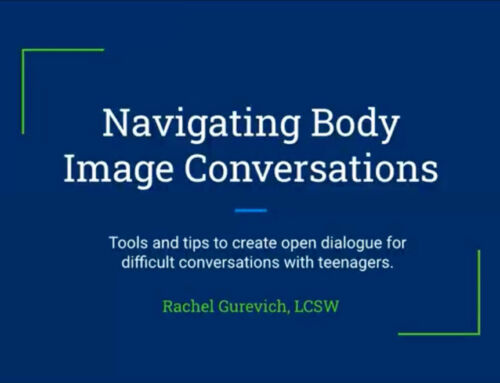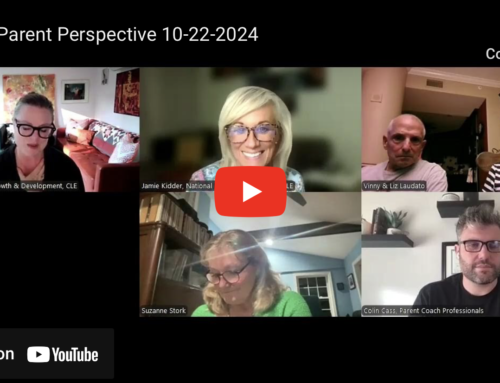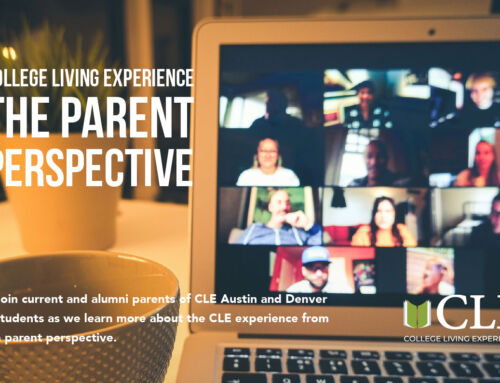
Heading off to college is one of the most exciting, and stressful, times in a young adult’s life—especially for neurodivergent students.
On top of all the normal preparation like getting all the supplies, electronics, and other necessities ready to go, neurodivergent students must research the resources and accommodations that are available to them through the institution—and then prepare and submit all sorts of documents to qualify for them. Preparing for college can become overwhelming in a hurry.
At CLE, we work with neurodivergent students across the country to help them transition successfully to higher learning institutions. We recommend the following tips and tactics, regardless of diagnosis, to help students build confidence and alleviate stress as they head off to campus.
1
Allow plenty of time to gather accommodations documents
 One of the biggest adjustments neurodivergent students must make in the transition to higher education is the need to submit multiple documents for accommodations.
One of the biggest adjustments neurodivergent students must make in the transition to higher education is the need to submit multiple documents for accommodations.
Many high school students who have an individual education program (IEP) or a 504 plan are used to those accommodations being in place when they arrive at school. This may not be the case at institutions of higher learning, where students need to register with the accessibility office on campus before submitting any documents.
On top of that, each institution’s accessibility office has different requirements. If you haven’t begun researching what the requirements are to receive accommodations at your school, now is the time to start. Head to the institution’s website and start exploring, and if you have specific questions, don’t hesitate to call the accessibility office directly. Calling the office is also a great way to practice self-advocacy (more on self-advocacy below).
But you don’t need to wait until you have all the specifics before you begin gathering your documents. For example, if you are due for a psychoeducational evaluation, go ahead and get it done. Now is a great time for an updated assessment and overview of accommodations that will benefit you.
2
Practice speaking up for yourself
In addition to taking the initiative with documentation, students must also be more proactive when it comes to advocating for themselves at college. This is true for the accessibility office and with professors, too. In high school, it’s common for students’ needs and learning styles to be automatically integrated into their studies after initial meetings or document submission. However, this isn’t always the case at the collegiate level.
Advocating for yourself isn’t always easy and can cause anxiety or nervousness. But your self-advocacy skills will improve each time you use them. That’s why we recommend practicing these skills before going to school. Role-playing with a parent, sibling, or someone else you trust is a great way to do this.
Here are three role-playing scenarios to try:
- Addressing your needs:
Practice a scenario where you tell a teacher about your specific needs. For example, “I am a neurodivergent learner with autism, and it would help if I had more time to answer questions on your tests.” - Identify and discuss strengths and challenges:
It may help a teacher or academic official understand your situation better and set you up for success faster if you can specifically explain your strengths and challenges to them. For example, are you a good visual learner? Can you remember information easily? Do you find sitting in a large class distracting and difficult? Does it help to get up and stand in the back of the class to help you focus? Practice talking about these things now with someone you know, and it will be much easier to explain them later to new people. - Asking for assistance:
Just because you may have accommodations approved doesn’t mean the teacher will always be up to speed on them. Practice having a conversation about the specific accommodations you have and getting them applied to you. For example, “Since I have accommodations, I do want to use them for the test we will be taking. I need an alternative location and some additional time to take the test.
Start tracking your time in a calendar
 The freedom and independence students gain at college can be a blessing and a curse. On one hand, you can eat, study, watch TV, scroll TikTok, etc. whenever you want. However, you will fall behind quickly if you don’t manage your time wisely.
The freedom and independence students gain at college can be a blessing and a curse. On one hand, you can eat, study, watch TV, scroll TikTok, etc. whenever you want. However, you will fall behind quickly if you don’t manage your time wisely.
In fact, how you choose to spend and manage your time is an indicator of your ability to get to class on time, manage your course requirements, arrive to work when you’re supposed to, etc.
It sounds simple, but using a calendar is a huge first step toward mastering time management. Make calendar entries for everything you have going on in a day. Include high-priority things like classes, tutors, and work, but also be sure to include study sessions, socializing, and free time.
While it may seem a little extra to schedule free time in your calendar, it’s a good way to motivate you into getting all your important things done before your free time kicks in so you can fully enjoy it without worry.
4
Schedule your own appointments
 Nothing will help you build time management skills faster than taking control of your own schedule.
Nothing will help you build time management skills faster than taking control of your own schedule.
Work with the people around you to start making decisions about new or upcoming additions to your schedule. For example, find out how your doctor appointments are scheduled and work with your parent or someone you trust on what scheduling an appointment looks like, how to tell if a new appointment will fit into your schedule, how to reschedule an appointment, etc.
Similarly, practice finding a social activity and checking your calendar to see if you have the time to do it. If so, work on adding the important details (what the event is, location, time, etc.) to your calendar.
College Living Experience (CLE) Academic Coordinators are there to help students along the way as they transition to higher learning. Once students are accepted to CLE, our team begins to work with students to learn about campus systems, follow the appropriate steps to register for accommodations, and prepare for local site orientations – everything from campus tours to buying books.
Hear from our National Admissions Advisor
Complete this form to set up a convenient time for us to call.








